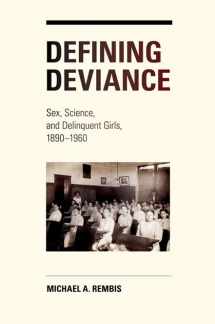
Defining Deviance: Sex, Science, and Delinquent Girls, 1890-1960
Book details
Summary
Description
Defining Deviance analyzes how reformers in the late nineteenth and early twentieth centuries perceived delinquent girls and their often troubled lives. Drawing on exclusive access to thousands of case files and other documents at the State Training School in Geneva, Illinois, Michael A. Rembis uses Illinois as a case study to show how implementation of involuntary commitment laws in the United States reflected eugenic thinking about juvenile delinquency. Much more than an institutional history, Defining Deviance examines the cases of vulnerable young women to reveal the centrality of sex, class, gender, and disability in the formation of scientific and social reform. Rembis recounts the contestations between largely working-class teenage girls and the mostly female reformers and professionals who attempted to diagnose and treat them based on changing ideas of eugenics, gender, and impairment. He shows how generational roles and prevailing notions of gender and sexuality influenced reformers to restrict, control, and institutionalize undesirable "defectives" within society, and he details the girls' attempts to influence methods of diagnosis, discipline, and reform. In tracing the historical evolution of ideologies of impairment and gender to show the central importance of gender to the construction of disability, Rembis reveals the larger national implications of the cases at the State Training School. His study provides new insights into the treatment of young women whom the dominant society perceived as threats to the sexual and eugenic purity of modern America.


We would LOVE it if you could help us and other readers by reviewing the book
Book review



